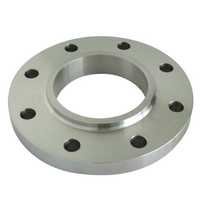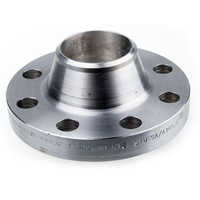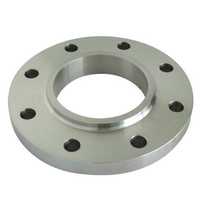Carbon Steel Flanges
(727 products)
Explore More Categories
JAYANT Carbon Steel Flanges
3 Years
Business Type: Manufacturer | Distributor
JAYANT IMPEX PVT LTD
Made in India
IBR Pipe Fittings
Price: 456 INR (Approx.)/Piece
MOQ - 100 Piece/Pieces
9 Years
Business Type: Manufacturer | Distributor
UNIQUE INDUSTRIALS
Verified Exporter
( Accepts only Foreign Inquiry)
Made in India
NIPPEN Carbon Steel Flanges
8 Years
Business Type: Manufacturer | Distributor
NIPPEN TUBES
Made in India
Micro Carbon Steel Flanges
3 Years
Business Type: Manufacturer | Distributor
MICRO TUBES (INDIA)
Indian Inquiries Only
Made in India
JAGDISH Carbon Steel Flanges
5 Years
Business Type: Manufacturer | Service Provider
JAGDISH METAL INDUSTRIES
Made in India
NANDISHWAR Carbon Steel Flanges
5 Years
Business Type: Manufacturer | Exporter
NANDISHWAR STEEL
Made in India
Carbon Steel Flanges
7 Years
Business Type: Manufacturer | Exporter
YOGDEEP ENTERPRISE
Corrosion Resistant Alloy Carbon Steel Flanges - Color: Silver
Price: 2000 INR (Approx.)/Piece
MOQ - 50 Piece/Pieces
Product Type - Alloy Carbon Steel Flanges
Material - Carbon Steel
Size - Vary
3 Years
Business Type: Manufacturer | Distributor
Alloyed Steel India
Made in India
Carbon Steel Flanges - Color: Silver
Price: 200 INR (Approx.)/Piece
MOQ - 10 Piece/Pieces
Product Type - Carbon Steel Flanges
Material - Carbon Steel
Shape - Round
Business Type: Manufacturer | Supplier
Artic Steel Industries
Made in India
Black Carbon Steel Slip On Flanges
MOQ - 100 Piece/Pieces
Product Type - Slip On Flanges
Material - Carbon Steel
Shape - Round
Business Type: Manufacturer | Supplier
METCORE STEEL & ALLOYS
Carbon Steel Flanges
2 Years
Business Type: Manufacturer | Distributor
METALLOY PIPING SOLUTIONS
Made in India
SAMBHAV Carbon Steel Flanges
5 Years
Business Type: Manufacturer | Exporter
SAMBHAV STEEL ENGG & CO.
Ramdevra Carbon Steel Flanges
5 Years
Business Type: Manufacturer | Distributor
Ramdevra Metal Industries
R K Carbon Steel Flanges
6 Years
Business Type: Manufacturer | Distributor
R K TRADING CO
Indian Inquiries Only
Carbon Steel Flange
2 Years
Business Type: Manufacturer | Distributor
ADINATH FORGE INDIA
Galvanized Carbon Steel Tee Flanges
MOQ - 100 Piece/Pieces
Heat Treatment - Normalizing
Material - Stainless Steel
Surface - Galvanized
3 Years
Business Type: Manufacturer | Distributor
GLOBAL METAL INDUSTRIES
RAHUL Carbon Steel Flanges
6 Years
Business Type: Manufacturer | Distributor
RAHUL FORGE & PIPE FITTINGS
Made in India
Reducing Round Carbon Steel Flanges
Price Trend: 100-50000 INR (Approx.)/Piece
MOQ - 100 Piece/Pieces
Product Type - Copper Flanges
Standard - ANSI
Shape - Reducing
3 Years
Business Type: Manufacturer | Distributor
RAGINI FORGE AND FITTING
Made in India
Industrial En8 Steel Bright Round Bars Standard: Bs
Price: 44 INR (Approx.)/Kilograms
MOQ - 100 Kilograms/Kilograms
Tolerance - 0.05 Millimeter (mm)
Standard - BS
Surface - Other
5 Years
Business Type: Manufacturer
SHAHNAZ BRIGHT STEEL INDUSTRIES PRIVATE LIMITED
Carbon Steel Flange
3 Years
Business Type: Manufacturer | Supplier
PARAM ENGINEERING
Carbon Steel Size: Customized
Product Type - Steel
Material - Carbon Steel
Size - Customized
Business Type: Manufacturer
Premier Steel Complex Pvt. Ltd.
Stainless Steel Cs A105 Blrf 300 Asme Flanges
Price: 430 INR (Approx.)/Piece
MOQ - 100 Piece/Pieces
Material - Stainless Steel
Standard - ANSI
Surface - Galvanized
Business Type: Manufacturer | Distributor
WORLD PIPING SOLUTIONS
Indian Inquiries Only
Carbon Steel Flange Fittings
Price: 200 INR (Approx.)/Piece
MOQ - as per requirement Piece/Pieces
Business Type: Manufacturer | Distributor
RAJESHWAR METALS
Kataria Carbon Steel Flanges
Business Type: Trading Company
Kataria Impex
Gray En9 Carbon Steel Pipe
Product Type - EN9 Carbon Steel Pipe
Material - Carbon Steel
Shape - Round
Business Type: Trading Company
K.R.STEEL UDYOG
Stainless Steel Reducer
Product Type - Carbon Steel Reducers
Material - Carbon Steel
Color - Black
Business Type: Manufacturer | Supplier
TUBE FIT INDUSTRIES
Indian Inquiries Only
EN19 Carbon Steel Round
Business Type: Distributor | Supplier
GANGA MOTI ISPAT UDYOG
Indian Inquiries Only
L. G. Carbon Steel Flanges
Business Type: Manufacturer | Distributor
L. G. PIPES & TUBES PVT. LTD.
Carbon Steel Flanges Manufacturers | Suppliers in India
| Company Name | Location | Member Since |
|---|---|---|
| Unique Industrials | Secunderabad, India | 9 Years |
| Nippen Tubes | Mumbai, India | 8 Years |
| Yogdeep Enterprise | Mumbai, India | 7 Years |
| R K Trading Co | Mumbai, India | 6 Years |
| Rahul Forge & Pipe Fittings | Navi Mumbai, India | 6 Years |
| Jagdish Metal Industries | Mumbai, India | 5 Years |
| Nandishwar Steel | Mumbai, India | 5 Years |
| Sambhav Steel Engg & Co. | Mumbai, India | 5 Years |
| Ramdevra Metal Industries | Mumbai, India | 5 Years |
| Shahnaz Bright Steel Industries Private Limited | Chennai, India | 5 Years |
Carbon Steel Flanges: Types, Specifications & Functions
Introduction
Depending on the quality of carbon steel used, the flanges chemical composition can include manganese, phosphorus, carbon, Sulphur, copper, nickel, chromium, silicon, molybdenum, and vanadium. Flanges made from carbon steel can range in price from the low hundreds to the thousands. Western Steel Agency produces flanges of all styles and metal qualities.
Carbon steel comes in many different thicknesses and tensile strengths. The minimum tensile strength is 485 MPa, while the minimum yield strength is 250 MPa. Flanges according to ANSI B16.5 Class 150 standards are suitable for medium-pressure applications. Flanges come in an assortment of pressure classes and materials, all of which are dependent on the nominal bore sizes and wall thicknesses.
Carbon Steel Flange Types
1. Carbon Steel A350 LF2 Flange
Annealed, normalized, or forged carbon steel A350 LF2 flanges have moderate strength and provide leak-proof couplings at a cheap price. The increased hardness of these flanges makes them more desirable than standard austenitic stainless steel flanges.
2. Carbon Steel A182 Flanges
One of the most successful outcomes of chemistry experiments and bonding is found in Carbon Steel A182 Flanges. You won't need to replace these flanges anytime soon. They have a widespread application in fields as diverse as petroleum processing, chemical manufacturing, and paper making. Because of its sturdy construction and low likelihood of breaking down immediately after installation, this flange type is among the most trustworthy goods available today.
3. Carbon Steel A694 Flanges
Flanges made of carbon steel, type A694, are suitable for the high-pressure environments required by oil and gas pipelines. Since this steel grade can't be easily strengthened, manufacturers will need to build steel that can withstand cryogenic and high temperatures. Higher carbon content results in tougher and stronger steel after heat treatment.
4. Sliding Flanges
Carbon steel flanges form a tube that goes through the same-sized cube. When using external and internal welding seams, the connecting plane need not come into direct contact with the connecting face. We can consider it easier than the carbon steel flanges due to the lesser precision of the tube life and greater placement flexibility. The sliding flange's mechanical condition is often good for fatigue and strength, but so much weaker than the neck-straps.
5. Welding Neck Flanges
Flanges having a long, tapered neck and a connector at their base are known as welding neck flanges. Flange and pipe inner diameters are the same. It's helpful in high-stress professions where you need to be able to handle it.
6. Threaded Flanges
Despite their lack of welding properties, they provide fast and simple installation. Male NPT threaded pipes are very helpful in some circumstances (for example, in pipes subjected to high ambient temperatures and pressures).
7. Carbon Steel Fabricated Flanges
There is tensile strength, as well as resistance to corrosion and a long lifespan. Carbon steel manufactured pipes have numerous applications. Desalination, shipping, food production, paper making, power generation, metal working, oil and gas extraction, and chemical production are just some of the businesses represented.
8. Carbon Steel ASTM A335 Pipes
Carbon steel with a tensile strength of 415 MPa and yield strength of 205 MPa is what goes into making an ASTM A335 Seamless pipe. In terms of resistance to wear and tear, the material is exceptional. Chromium, Molybdenum, manganese, sulfur, phosphorus, silicon, and carbon are the raw materials.
This Pipe features those typical of pipes thanks to its chemical make-up. It has properties such as being wear resistance, resistant to corrosion, hot hardness stiffness, and strength.
9. Carbon Steel LSAW pipes
It's got some great qualities like being rustproof, having a seamless design, and being simple to set up. Although they are commonly used in high-value energy applications, LSAW pipes are rarely used in lower-value non-energy applications such as water pipelines due to their high cost. There's more iron and carbon in it.
The components used to construct the pipes are directly responsible for their quality. Copper, manganese, and even a little bit of silicon can be found in it. That's why carbon steel seamless pipe is so much more resilient and strong under pressure. Due to the design, the pipes can be used in high-traffic areas.
Carbon Steel Flange Material Specification
The outside diameters of carbon steel pipes range from half an inch to forty-eight inches. Many different specifications, including X52, X70, API 5L - B, X56, X46, PSL 1 Gr. A, X60, Grade 1,6, X65, ASTM A/ASME SA 53 Grade A, B, ASTM A/ASME SA 333 X42, and ASTM A/ASME SA 106 Grade A, B, C, are used in the production of carbon steel pipes.
Carbon steel pipes come in a variety of shapes and sizes, all of which are dependent on their wall thickness. SCH 80, SCH 40, SCH 160, etc. are just the beginning of the available options. General engineering, pressure vessels, sugar mills, steel mills, boiler plants, petrochemical plants, oil refineries, and nuclear power plants are just some of the many places you'll find CS pipes put to use. Pipes made of carbon steel are typically Grade B steel, which has a minimum yield strength of 35,000 psi, and has been used for decades.
A carbon steel has a carbon percentage of 2.1 or higher by weight. What is the AISI definition of
1. No requisite amount of alloying elements such as Cr, Mo, Ni, Ti, Va, etc.
2. The minimal amount of Cu required is 0.04%.
3. Composition: 1.65% Mn, 0.06% Si max.
Heat treatment improves the steel's hardness and strength, and the carbon content has a direct effect on these properties. The opposite was true; its ductility decreased. Whereas more carbon will decrease weldability if not heat treated.
Carbon Steel Flange Dimensions
Dimensions: ANSI/ASME B16.5, B 16.47 Series A & B, B16.48, BS4504, BS 10, EN-1092, DIN, etc.
Properties such as corrosion resistance, great durability, and smooth finishing are provided by this material. You can choose from a number of different variations. For instance, the pipe can be ended with Carbon Steel Blind Flanges. These flanges are made using premium materials. Carbon can be found in them at a percentage between 0.25% and 0.60%. Carbon and manganese give the material strength and ductility, making it ideal for use in manufacturing.
Most commonly alloyed with iron, modern carbon steel has a carbon concentration of up to 2.1% by weight. Steel without a lot of chromium or nickel can also be referred to as "carbon steel." A105's carbon content can range from 0.25 to 0.35 percent.
Steel can be made harder and stronger through heat treatment as its carbon content rises. Quenching, tempering, and normalizing are just a few of the many treatment processes commonly used in the industry.
Benefits of Using Carbon Steel Flanges
The reason for this is because of the high quality of its finishing, corrosion resistance, and durability. Several fields can benefit from it. Many different industries fall into this category, such as the energy sector, the chemical industry, the petrochemical industry, and others.
FAQs: Carbon Steel Flanges
Q. Why carbon steel flanges are widely used?
Ans. Carbon steel flanges are cheap and best for use in various piping applications. It has the required level of resistance to corrosion and rusting while being much cheaper than stainless steel.
Q. How carbon steel flanges are strengthened?
Ans. Carbon steel flanges are strengthened with paint, varnish or metal coating for enhanced resistance to rusting and corrosion.
Q. Where can we find carbon steel flanges manufacturers?
Ans. You can find carbon steel flanges manufacturers on the internet with a simple search on search engines. The manufacturers can also be contacted through leading B2B marketplace in India.
Q. What is the significance of flanges in pipeline system?
Ans. Flanges are used in pipelines because they provide strong joints while also ensuring convenience in some situations, such as cleaning, inspection and repairing.
Q. Where can buyers purchase carbon steel flanges in bulk quantity?
Ans. Buyers can purchase carbon steel flanges at trusted B2B portals where they can check the details of various categories of flanges in all sizes, dimensions and material types.
Related Blog Topic:
India's Best Quality Top 10 Carbon Steel Flanges Manufacturers Suppliers Exporters
Related Categories
Alloy Steel Flanges
Alloy Steel Pipes & Tubes
Aluminium Pipes & Tubes
Brass Pipe Fittings
Brass Pipes & Tubes
Carbon Steel Flanges
Carbon Steel Pipes & Tubes
Cast Iron Pipes
Copper Pipes & Fittings
ERW Pipes & Tubes
Flanges
Forged Pipe Fittings
GI Pipe Fittings
Galvanized Pipes & Tubes
HDPE Pipe Fittings
HDPE Pipes
Hoses
Metal Pipes & Tubes
Mild Steel Pipes & Tubes
Nickel Flanges
Nickel Pipes & Tubes
PVC Hoses
PVC Pipe Fittings
PVC Pipes
Pipe Elbows
Pipes & Pipe Fittings
Plastic Pipes
Plastic Tubes
Rotary Unions & Joints
Round Bars
Scaffolding Pipes & Tubes
Socket Weld Fittings
Stainless Steel Flanges
Stainless Steel Pipes
Stainless Steel Tubes
Steel Pipes & Tubes
Titanium Pipes & Tubes
Tubes & Tube Fittings


